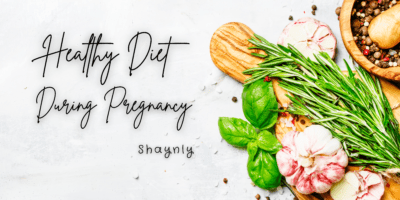Table of Contents
Pregnancy is a time when a woman's body undergoes significant changes, and it's crucial to maintain a healthy diet to support both the mother and the growing baby. Eating a nutritious diet during pregnancy can help reduce the risk of complications, support healthy fetal growth and development, and ensure that the mother is getting the essential nutrients she needs. In this article, we'll discuss the key foods to eat during pregnancy and provide tips for maintaining a healthy diet.
The Benefits of a Healthy Diet During Pregnancy
Eating a healthy diet during pregnancy has numerous benefits, both for the mother and the developing baby. Some of the key benefits include:
Supporting healthy fetal growth and development:
Eating a balanced diet that includes all the essential nutrients can help ensure that the growing baby is getting the nutrients it needs to develop and grow.
Reducing the risk of complications:
A healthy diet can help reduce the risk of complications during pregnancy, such as gestational diabetes, preeclampsia, and preterm labor.
Supporting the mother's health:
A nutritious diet can also help support the mother's health by reducing the risk of nutrient deficiencies, supporting healthy weight gain, and improving energy levels.
Research has shown that a healthy diet during pregnancy can have a significant impact on the health of both the mother and the developing baby. For example, a study published in the journal Nutrients found that pregnant women who ate a diet rich in fruits and vegetables, whole grains, lean protein, and healthy fats had a reduced risk of gestational diabetes and pre-eclampsia. Another study published in the journal Pediatrics found that children of mothers who ate a healthy diet during pregnancy had a reduced risk of childhood obesity.
Key Foods to Eat During Pregnancy
- Fruits and vegetables: Fruits and vegetables are an essential part of a healthy diet, providing a range of vitamins, minerals, and antioxidants. Aim to eat a variety of fruits and vegetables, including leafy greens, berries, citrus fruits, and cruciferous vegetables like broccoli and cauliflower.
- Whole grains: Whole grains are an excellent source of fiber, which can help support digestive health and reduce the risk of constipation. Choose whole grain bread, pasta, and cereal, and aim to eat at least 3-4 servings per day.
- Lean protein: Protein is an essential nutrient that supports healthy fetal growth and development. Choose lean protein sources like poultry, fish, beans, and tofu, and aim to eat at least 2-3 servings per day.
- Dairy products: Dairy products are an excellent source of calcium, which is essential for fetal bone development. Choose low-fat or fat-free dairy products like milk, cheese, and yogurt, and aim to eat at least 3 servings per day.
- Healthy fats: Healthy fats, such as those found in nuts, seeds, and fatty fish, are essential for fetal brain development. Choose healthy fat sources and aim to eat at least 2 servings per day.
The best foods to eat when pregnant, ensuring you receive the necessary nutrients for a healthy pregnancy.

1. Leafy Green Vegetables
Leafy green vegetables are an excellent source of vitamins, minerals, and antioxidants essential for pregnancy. These include spinach, kale, and broccoli. These greens are packed with folate, a crucial nutrient that aids in the proper development of the baby's neural tube.
2. Whole Grains
Incorporating whole grains into your diet during pregnancy is highly beneficial. Whole grains such as oats, quinoa, and brown rice provide complex carbohydrates, fiber, and essential nutrients like vitamin E, selenium, and phytonutrients. These nutrients contribute to healthy digestion, prevent constipation, and support the overall well-being of both mother and baby.
3. Lean Protein Sources
Protein is vital for the growth and development of the baby, as well as the production of new cells and tissues. Opt for lean protein sources such as lean meats, poultry, fish, eggs, and legumes. These foods are rich in high-quality protein, iron, and zinc, which are essential for a healthy pregnancy.
4. Dairy Products
Dairy products are an excellent source of calcium, which is crucial for the development of the baby's bones and teeth. Additionally, they provide protein, vitamin D, and other essential nutrients. Include milk, yogurt, and cheese in your diet to ensure an adequate intake of calcium during pregnancy.
5. Colorful Fruits
Vibrant and colorful fruits like berries, oranges, apples, and bananas are packed with essential vitamins, minerals, and antioxidants. These fruits provide vitamin C, which helps in the absorption of iron and supports the immune system. Additionally, they offer natural sweetness and can satisfy those pregnancy cravings.
6. Healthy Fats
During pregnancy, it's important to include healthy fats in your diet. Avocados, nuts, seeds, and olive oil are excellent sources of monounsaturated fats, omega-3 fatty acids, and vitamin E. These healthy fats support the development of the baby's brain and eyes, as well as aid in the absorption of fat-soluble vitamins.
7. Legumes
Legumes, including lentils, chickpeas, and beans, are fantastic plant-based sources of protein, fiber, iron, folate, and calcium. They not only provide a nutritious option for vegetarians but also contribute to a well-rounded pregnancy diet.
8. Water
Staying hydrated is crucial during pregnancy. Water helps to maintain the balance of bodily fluids, supports nutrient transport to the baby, and aids in digestion and metabolism. Aim to drink at least 8-10 glasses of water per day, and increase your intake during hot weather or physical activity.
9. Nutrient-Dense Snacks
Choose healthy snacks that are rich in nutrients to support your energy levels throughout the day. Opt for options like nuts, seeds, Greek yogurt, and fruit. These snacks provide a combination of protein, healthy fats, and carbohydrates, keeping you satiated and nourished.
10. Foods to Avoid
While it's important to focus on nutrient-rich foods, there are certain foods to avoid during pregnancy. These include unpasteurized dairy products, raw or undercooked meats, fish high in mercury, and excessive caffeine or alcohol. Be sure to consult with your healthcare provider to understand the complete list of foods to avoid during pregnancy.
Maintaining a well-balanced and nutrient-rich diet during pregnancy is of utmost importance for the health and development of both the mother and the baby. By incorporating the foods mentioned above into your daily meals, you can ensure an adequate intake of essential vitamins, minerals, and antioxidants. Remember to consult with your healthcare provider for personalized dietary recommendations based on your specific needs. Wishing you a healthy and happy pregnancy journey!

Tips for Maintaining a Healthy Diet During Pregnancy
- Eat frequent, small meals: Eating small, frequent meals throughout the day can help reduce nausea and improve digestion.
- Stay hydrated: Drinking plenty of water is essential during pregnancy, as it helps support healthy blood flow, prevents constipation, and supports healthy fetal development.
- Avoid processed foods and added sugars: Processed foods and added sugars can be high in calories and low in nutrients, which can contribute to excessive weight gain and nutrient deficiencies.
- Talk to your healthcare provider: Your healthcare provider can provide guidance on maintaining a healthy diet during pregnancy and can help identify any nutrient deficiencies that may need to be addressed.
- Consider prenatal vitamins: Prenatal vitamins can help ensure that you're getting all the essential nutrients you need during pregnancy, particularly folic acid, iron, and calcium.
- Listen to your body: Pay attention to your hunger and fullness cues and eat when you're hungry. Don't restrict your calorie intake or try to lose weight during pregnancy without first consulting your healthcare provider.
Foods to Avoid During Pregnancy
While there are many foods that are beneficial to eat during pregnancy, there are also some foods that should be avoided for healthy diet. These include:
- Raw or undercooked meat: Raw or undercooked meat can be contaminated with bacteria like E. coli or Salmonella, which can cause foodborne illness.
- Raw or undercooked eggs: Raw or undercooked eggs can also be contaminated with bacteria and should be avoided.
- Fish with high levels of mercury: Fish like shark, swordfish, and king mackerel can be high in mercury, which can be harmful to the developing baby's nervous system.
- Deli meats and soft cheeses: Deli meats and soft cheeses like brie and feta can be contaminated with bacteria like Listeria, which can cause foodborne illness.
- Alcohol: Alcohol should be avoided during pregnancy, as it can have harmful effects on fetal development.
Sources
- American College of Obstetricians and Gynecologists. Nutrition during pregnancy.
- American Heart Association. Added sugars.
- Centers for Disease Control and Prevention. Pregnant? Protect yourself from Listeria.
- National Institutes of Health. Caffeine in pregnancy.
- U.S. Food and Drug Administration. Food safety for moms-to-be: While you're pregnant - food safety.
Disclaimer: The information provided in this article is for educational purposes only and is not intended as medical advice. It is important to consult with your healthcare provider before making any changes to your diet or exercise routine during pregnancy. Every pregnancy is unique, and individual needs may vary. The author and publisher of this article are not responsible for any adverse effects or consequences that may result from the use or implementation of any information or recommendations provided in this article.
FAQ
Is it safe to eat fish during pregnancy?
Yes, it is safe to eat fish during pregnancy, but it's important to choose fish that are low in mercury. Some fish that are safe to eat during pregnancy include salmon, tilapia, and cod. Fish that are high in mercury, such as shark, swordfish, and king mackerel, should be avoided.
Do I need to take a prenatal vitamin during pregnancy?
Yes, it's recommended to take a prenatal vitamin during pregnancy to ensure that you're getting all the essential nutrients you need, particularly folic acid, iron, and calcium. Your healthcare provider can provide guidance on which prenatal vitamin is best for you.
Can I drink coffee during pregnancy?
Moderate caffeine intake, which is generally defined as 200 milligrams per day or less, is considered safe during pregnancy. This is equivalent to about one 12-ounce cup of coffee. However, it's important to check with your healthcare provider to determine what's safe for you.
Can I eat raw vegetables during pregnancy?
Yes, it's safe to eat raw vegetables during pregnancy, as long as they have been washed thoroughly. Raw vegetables can be a healthy and nutritious addition to your healthy diet during pregnancy.
Is it safe to eat deli meats during pregnancy?
Deli meats can be contaminated with bacteria like Listeria, which can cause foodborne illness. It's recommended to heat deli meats until they are steaming hot before consuming them to reduce the risk of Listeria infection.
Can I eat peanuts during pregnancy?
Yes, you can eat peanuts during pregnancy. There is no evidence to suggest that eating peanuts during pregnancy increases the risk of peanut allergy in your baby. However, if you have a family history of peanut allergy, your healthcare provider may recommend avoiding peanuts or other nuts during pregnancy.
Should I eat more calories during pregnancy?
Yes, you should eat more calories during pregnancy to support the growth and development of your baby. The American College of Obstetricians and Gynecologists recommends that pregnant women consume an extra 300 calories per day in the second and third trimesters.
Is it safe to eat sushi during pregnancy?
It is generally recommended to avoid raw or undercooked fish during pregnancy, including sushi, to reduce the risk of foodborne illness. However, some types of sushi that are made with cooked fish or vegetables may be safe to eat. It's important to discuss with your healthcare provider to determine what's safe for you.
Can I eat soft cheeses during pregnancy?
Soft cheeses that are made from unpasteurized milk, such as feta, brie, and blue cheese, should be avoided during pregnancy due to the risk of Listeria infection. Soft cheeses made from pasteurized milk, such as cream cheese and cottage cheese, are safe to eat.
Should I avoid all alcohol during pregnancy?
It is recommended to avoid all alcohol during pregnancy to reduce the risk of fetal alcohol syndrome and other alcohol-related birth defects.
Can I eat spicy foods during pregnancy?
Yes, you can eat spicy foods during pregnancy. Spicy foods do not pose any risk to the health of the mother or the baby.
Should I limit my intake of sugar during pregnancy?
It is recommended to limit your intake of added sugars during pregnancy to avoid excessive weight gain and to promote optimal health for you and your baby. The American Heart Association recommends that women limit their intake of added sugars to 6 teaspoons per day.
Can I eat fast food during pregnancy?
Fast food can be high in calories, fat, and sodium, which can contribute to excessive weight gain and other health problems. It's important to consume fast food in moderation and to choose healthier options when possible.
Can I drink herbal tea during pregnancy?
Some herbal teas may be safe to drink during pregnancy, but others may contain ingredients that can be harmful to the developing fetus. It's important to check with your healthcare provider to determine what's safe for you.
Can I eat ice cream during pregnancy?
Yes, you can eat ice cream during pregnancy. However, it's important to choose varieties that are low in added sugars and fat to promote optimal health for you and your baby.
Should I avoid caffeine during pregnancy?
Moderate caffeine intake, which is generally defined as 200 milligrams per day or less, is considered safe during pregnancy. However, high levels of caffeine intake have been associated with an increased risk of miscarriage and low birth weight.
Can I eat hot dogs during pregnancy?
Hot dogs may be contaminated with bacteria like Listeria, which can cause foodborne illness. It's recommended to heat hot dogs until they are steaming hot before consuming them to reduce the risk of Listeria infection.
Can I eat pate during pregnancy?
Pate should be avoided during pregnancy due to the risk of Listeria infection. It's also high in vitamin A, which can be harmful to the developing fetus in large amounts.
Can I eat raw eggs during pregnancy?
Raw or undercooked eggs should be avoided during pregnancy due to the risk of Salmonella infection. It's recommended to cook eggs until the yolks and whites are firm to reduce the risk of foodborne illness.

Comments are closed.